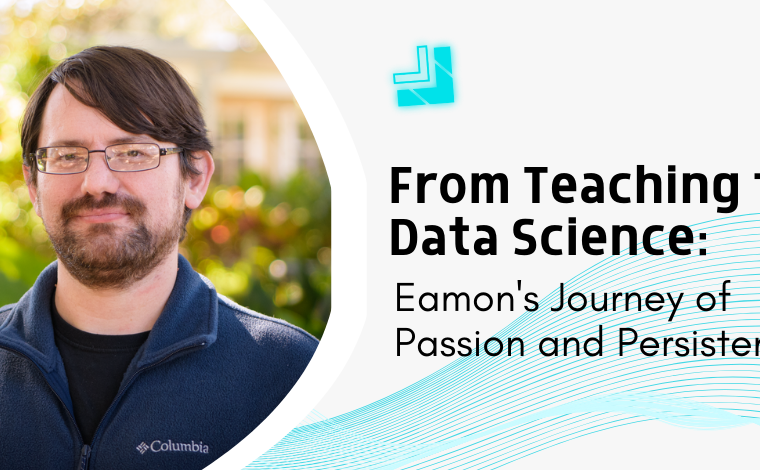The Essential Data Science Skills You Need to Succeed

Stay Informed With Our Weekly Newsletter
Receive crucial updates on the ever-evolving landscape of technology and innovation.
In today’s digital age, data has become a valuable asset for companies across all industries.
According to Fortune Business Insights, the global big data analytics market is worth over $307 billion.
Thus, the ability to collect, analyse, and derive insights from data has created a demand for professionals with data science skills.
Whether you’re a business professional looking to enhance your career or a recent graduate considering a career in data science, understanding the essential skills required is crucial.
In this article, we will explore the key data science skills that are essential for success.
Understanding the importance of data science skills

As the world becomes increasingly data-driven, organisations are relying on data science to make informed decisions.
Data science involves extracting meaning from vast amounts of data, enabling businesses to gain valuable insights and make predictions.
The role of data science has expanded to encompass various sectors, such as healthcare, finance, marketing, and beyond.
By utilising data science skills, professionals can uncover patterns, identify trends, and develop models to solve complex problems.
In doing so, they contribute to the growth and success of their organisations.
Furthermore, data science skills are highly sought after in the job market.
According to industry reports, data-related roles are projected to grow significantly in the coming years, with a shortage of skilled professionals in the field.
Therefore, having the right data science skills can open up ample career opportunities.
The role of data science in today’s world
Data science plays a crucial role in driving innovation and transformation across industries.
From healthcare to finance, data science is helping organisations make informed decisions, streamline processes, and improve overall efficiency.
In healthcare, for example, data science is used to analyse patient records, identify disease patterns, and optimise treatment plans.
Data scientists can uncover insights that lead to better patient care, reduced costs, and improved outcomes.
Data science is also essential in finance, where professionals utilise predictive models to detect fraudulent activities, analyse market trends, and manage risks.
By harnessing the power of data, financial institutions can make informed investment decisions and devise efficient trading strategies.
How data science skills contribute to career success
If you’re considering a career in data science or aiming to advance in your field, developing data science skills is vital for long-term success.
These skills not only enable you to offer valuable insights to organisations but also position you as a sought-after professional in a competitive job market.
Data science skills provide you with the ability to extract actionable insights from complex data sets, which can drive business growth and innovation.
Additionally, possessing data science skills showcases your ability to solve intricate problems and make data-driven decisions, qualities that are highly valued by employers.
Furthermore, data science professionals often enjoy lucrative salaries and excellent job prospects.
Organisations are willing to invest in skilled data scientists who can help them harness the power of data to gain a competitive advantage.
The foundation: core data science skills

Building a strong foundation in core data science skills is essential for anyone looking to pursue a career in data science.
These skills form the fundamental pillars on which you can build more advanced knowledge:
Proficiency in programming languages
One of the foundational skills in data science is programming. Proficiency in programming languages such as Python or R is crucial for data manipulation, statistical analysis, and building machine learning models.
These languages provide a wide range of libraries and frameworks specifically designed for data science tasks.
By mastering programming languages, you gain the ability to clean and transform data, perform exploratory data analysis, and implement algorithms to solve complex problems.
Additionally, proficiency in programming enhances your productivity and allows you to automate repetitive tasks.
Knowledge of statistics and probability
Data science heavily relies on statistical analysis and probability theory to extract meaning from data.
Understanding concepts such as hypothesis testing, regression analysis, and Bayesian inference empowers you to make accurate inferences and predictions.
With a solid foundation in statistics and probability, you can effectively analyse patterns, identify correlations, and validate your findings.
Additionally, being able to interpret statistical results and communicate them in a meaningful way is crucial for effective decision-making.
Mastery of machine learning techniques
Machine learning is at the forefront of data science innovation.
Having a thorough understanding of the various machine learning algorithms and techniques is essential for developing predictive models and making accurate forecasts.
From simple linear regression to complex deep learning models, data scientists apply these techniques to analyse data, detect patterns, and make predictions.
By mastering machine learning, you can unlock the power of predictive analytics, enabling organisations to make data-driven decisions and gain a competitive edge.
Data science skills to enhance your career
Once you have laid the foundation of core data science skills, it’s time to expand your knowledge and enhance your expertise in advanced techniques.
These skills will enable you to tackle complex data challenges and stand out in a competitive job market.
Data visualisation and communication
Data visualisation is a critical skill for data scientists. It involves presenting complex data in a visual format that is easy to understand and interpret.
Visualisations enable you to communicate insights effectively and make data-driven recommendations to decision-makers.
By leveraging various tools and libraries such as Tableau or ggplot, data scientists can create interactive dashboards, charts, and graphs that facilitate understanding and drive action.
The ability to transform complex data into compelling visuals is invaluable in conveying information to stakeholders across all levels of an organisation.
Big data handling and processing
In today’s era of big data, handling and processing large datasets is a critical skill. As data volumes grow exponentially, traditional data processing techniques become insufficient.
Data scientists need to be proficient in distributed computing frameworks such as Apache Hadoop and Apache Spark.
These frameworks allow you to process massive amounts of data in parallel, enabling faster and more efficient analysis.
By mastering big data handling and processing, you can extract insights from vast datasets, uncover hidden patterns, and make data-driven decisions at scale.
Understanding of data-driven decision making
Beyond technical skills, data scientists also need a deep understanding of business processes and domain knowledge.
Data-driven decision-making involves translating data insights into actionable strategies that drive business value.
By aligning data science initiatives with organisational goals, data scientists can identify opportunities for improvement, optimise processes, and drive innovation.
Effective data-driven decision-making requires collaboration with stakeholders, effective communication, and a focus on continuous improvement.
Developing your data science skills

While having the right data science skills is crucial, it’s equally important to continuously develop and refine them.
The field of data science is rapidly evolving, with new technologies and techniques emerging regularly.
Here are some tips for developing your data science skills.
Educational resources for data science
There are various educational resources available to help you develop your data science skills, such as the Data Science and AI program offered by the Institute of Data.
Additionally, blogs, forums, and online communities provide a wealth of information and resources where you can learn from industry experts and connect with like-minded professionals.
Taking advantage of these resources can help you stay abreast of the latest trends and developments in data science.
The importance of continuous learning in data science
Data science is a field that constantly evolves. To stay ahead of the curve, it’s essential to embrace continuous learning.
This involves staying up to date with the latest tools, techniques, and industry best practices.
Engaging in continuous learning can be accomplished through various means, such as attending conferences, participating in webinars, joining data science communities, and reading industry journals.
By dedicating yourself to lifelong learning, you can remain at the forefront of the field and continually enhance your skill set.
Balancing theory and practical application in data science
Data science encompasses both theory and practical application. While understanding the underlying principles is important, practical experience is equally invaluable.
It’s essential to apply your skills in real-world scenarios to gain hands-on experience and learn how to handle real data challenges effectively.
Initiating personal projects or participating in open-source projects allows you to apply your knowledge to real problems and build an impressive portfolio that showcases your skills to potential employers.
In conclusion
Data science skills are essential in today’s data-driven world.
Understanding the importance of data science, developing a strong foundation in core skills, and mastering advanced techniques are crucial steps towards a successful data science career.
By continuously developing your skills and staying up to date with the latest trends, you can position yourself as a valuable asset in the data-driven economy.
Learn more about data science skills by exploring the Institute of Data’s comprehensive Data Science & AI program.
Alternatively, we encourage you to schedule a complimentary career consultation with a member of our team to discuss our programs.




